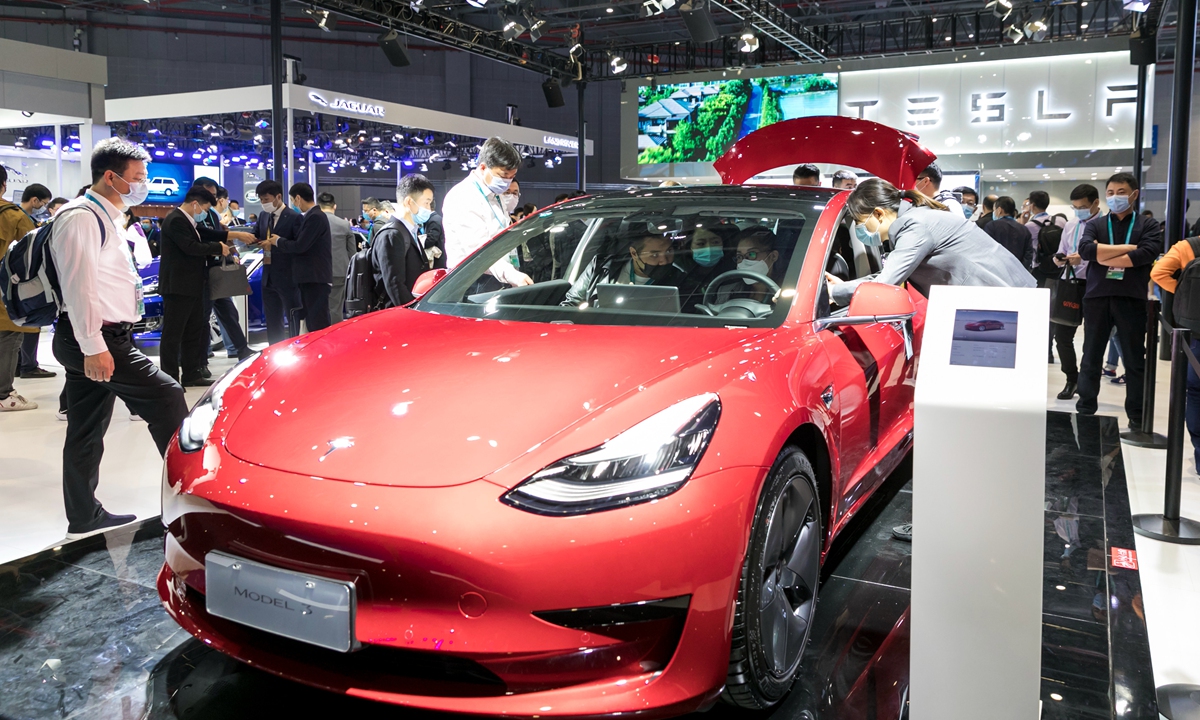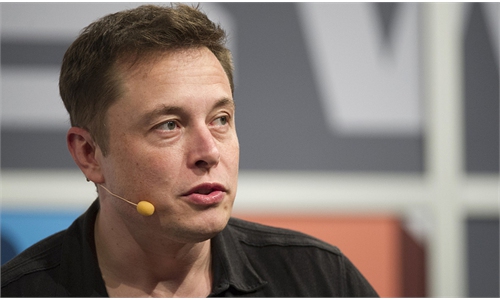Reported restrictions in Chinese military bases don't target Tesla, but a global practice: analysts

A Tesla EV model seen in Shanghai in November 2020 Photos: cnsphoto
As reports have been spreading that China is banning electric cars made by US-based Tesla from entering some domestic military complexes, Chinese analysts pointed out the restriction, if turns out to be true, is not a targeted one but a common practice that doesn't need to be exaggerated considering the confidentiality of the locations.
The comments came after Reuters reported that the Chinese military has banned Tesla cars from entering its complexes, citing security concerns over cameras installed on the vehicles.
Tesla's China-made Model 3 car is equipped with eight cameras and 12 ultrasonic sensors.
Industry insiders said due to the sensitivity of military bases and facilities, it's a global practice to tighten behaviors such as photograph and mobility of the people in such places.
For instance, in the US, to make any photograph, sketch, picture, drawing, map, or graphical representation of some vital military and naval installations or equipment without first obtaining permission would be considered as unlawful.
While according to the law of China on the Protection of Military Installations, without the approval of the competent military organ at or above the division level superior to the unit in charge of the operations structures, no photographing, video-taping, prospecting, surveying, drawing or describing of the operations structures shall be allowed.
In the wake of Reuters' report, Tesla's founder Elon Musk, who is also a celebrity in China, said that the company will never use its products to spy on any country.
"If Tesla used cars to carry out espionage activities in China or anywhere, we will get shut down...There's a strong incentive for us to be confidential," he was quoted by the South China Morning Post as saying during a recent virtual meeting.
"I'm not aware whether Tesla is allowed to enter military facilities now, but private cars have to be registered before they came in all the time, and they are only allowed to stay for a certain while even after registration," a person at a military facility in Beijing, who asked to remain anonymity, told the Global Times on Sunday.
Analysts said that such measures are in nature different from the US' crackdown on Chinese tech companies like Huawei based on so-called national security concerns.
The US government has accused Huawei of creating a backdoor that allows it to access mobile phone networks around the world, and claimed that it has evidence for such accusations, according to media reports.
But the US has not yet provided "evidence" that can back up its accusations and action against Huawei, Zhu Wei, a professor at the China University of Political Science and Law in Beijing, told the Global Times.
"What they accuse Huawei of, has not been proved by any efficient evidence. Besides, their ban on Huawei is not limited to certain scenarios like in the reported Tesla case," he said, adding that the comparison between the US' rigid ban on Huawei and the reported limited restrictions launched by China on Tesla, again showed that China is a more open market for overseas companies on sensitive issues.
Tech analyst Fu Liang stressed that the restriction is unlikely to have any concrete impact on Tesla's business in China.

